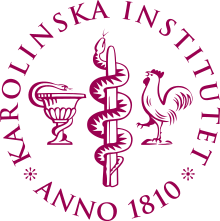Karolinska Institutet

Karolinska Institutet (KI), founded in 1810, is Sweden’s only university especially focusing on biomedical sciences. In addition, KI annually awards the Nobel Prize in Physiology or Medicine. KI ranks as one of the world’s leading medical universities, thanks in part to the quality of its research activities. KI has about 4 800 employees (full-time equivalents), nearly two-thirds of whom are female. Some 80 per cent of KI’s income is devoted to research, distributed among some 600 research groups covering all medical fields. Research at KI has a strong European dimension, with almost 200 project participations within the EU’s now closed Sixth Framework Programme (FP6). Of these, KI coordinated 28 projects. KI is a major player in FP7, participating in some 323 projects including 36 as coordinator as well as 31 European Research Council Grants. KI has to date been awarded 123 contracts within Horizon 2020. KI is also a major European beneficiary of funds from the National Institutes of Health in the U.S. Swetox “Swedish Toxicology Sciences Research Center” was a unique academic interdisciplinary organization for collaboration between 11 Swedish universities in the area of toxicological sciences under the administration of Karolinska Institutet (KI). Within the EDC2020 project granted to Swetox by Swedish Research Council FORMAS, Swetox connected senior researchers, experts in various areas of endocrine disruption by chemicals. In addition, the EU funded EDC MixRisk project, studying the effects of chemical mixures on endocrine pathways, is coordinated from Swetox. Swetox contributed to a number of EDC related projects with the in vitro and in silico models, bioanalysis and in vivo testing.
Dr. Vesna Munic Kos, co-leader of WP4. Since 2014 Vesna Munic Kos is a Senior Research Fellow at Swetox and Karolinska Institutet and PI of the project “Predicting the effects of highly accumulating compounds” funded by Karolinska Institutet. She has 13 years of experience in the research of pharmaceutical industry (GlaxoSmithKline, Galapagos, PLIVA) working on pharmaceutical mechanism of action, development and validation of in vitro pharmacodynamics and pharmacokinetics models. She has been the project leader of two international drug discovery projects for inflammatory indications and one basic science project on cellular pharmacokinetic modelling. She has developed a number of quantitative in vitro assays on various cell types aimed for high and medium throughout screening, among which also adipogenesis models and high content analysis of lipid droplet formation.
Assoc. Prof. Dr. Joëlle Rüegg, participant, is Senior Researcher and PI at Swetox and KI since 2014, funded by the Swedish Research Council Formas. Her research focuses on environmental epigenetics, particularly in the context of EDC exposure during development. Her research integrates molecular mechanisms underlying chemically-induced epigenetic changes with cellular and behavioural outcomes in different experimental models and in human data. Previous to her current position, she held postdoc positions at KI and Axcentua Pharmaceuticals AB in Stockholm, funded by the Swiss National Science foundation (SNSF) and Marie Curie Industry-Academia Partnerships & Pathways, and an independent researcher position at the University of Basel funded by an SNSF Ambizione fellowship. She is vice-coordinator for EDC-MixRisk, part of the EU-ToxRisk project, and leading or involved in 5 national projects funded by the Swedish Research Council VR, the Swedish Research Council Formas, and the Swedish Brain Foundation.